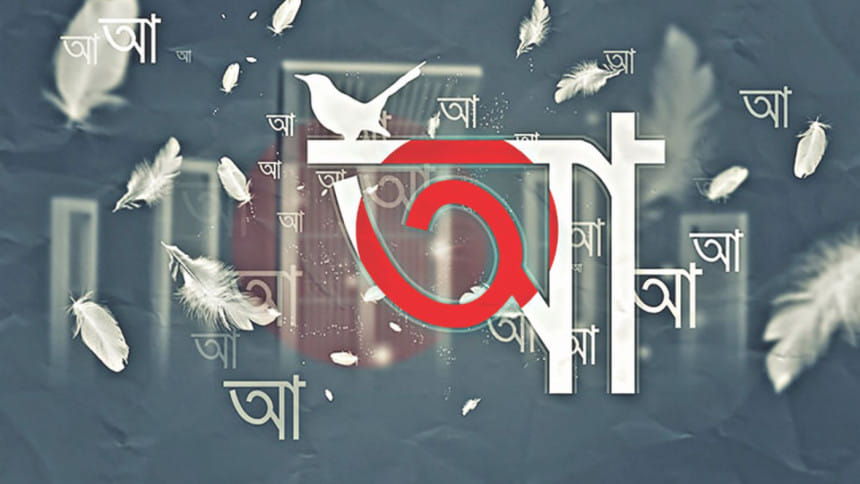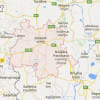Mother tongues in a globalising world

It is a matter of great national satisfaction and pride that February 21, our Amar Ekushey, is being observed all over the world today as the International Mother Language Day. The Unesco General Conference had taken a decision to that effect on November 17, 1999, when it unanimously adopted a resolution tabled by Bangladesh and co-sponsored by 28 countries. Today, people in 185 countries will take a fresh vow to preserve their mother languages, as our immortal language martyrs had done 66 years ago. What a befitting tribute to our martyrs!
As the initiator of the proposal, Bangladesh had committed herself to promoting Ekusheyer Chetona (the spirit of our Language Movement) globally. We had also pledged not only to protect and enrich our own mother language, but also to take initiatives for the preservation of some 7,000 other mother languages currently spoken in the world.
In this globalising world, the question arises regarding the need to preserve all mother languages. The UN provided the answer when they underscored that linguistic diversity and multilingualism are a must for our sustainable development at a time when languages are dying at an alarming rate. Some experts believe that mankind has already lost thousands of languages. At the current pace, we are losing one language every two weeks and they are taking with them entire cultural and intellectual heritages.
Experts caution that due to current globalisation process, the global linguistic diversity is under increasing threat. Of course, there is a huge imbalance in the world of language as 96 percent of the existing languages are spoken by only four percent of the world population. Given this scenario, the apprehension is that more than 50 percent of the 7,000 languages spoken in the world today will die out in this century. At the moment, a few hundred languages are used in the education systems and in the public domain and less than a hundred are used in the digital world.
The issue deserves priority consideration as languages are the most powerful instruments in preserving and developing the tangible and intangible heritage of mankind. Mother language is a prism which determines our first notions of the world and draws the contours of our identity and cultural lineage. Thus, languages are not only vital elements in our common heritage but also the crucial factor in human creativity in all its diversity. When a language dies, a part of humanity dies.
On the other hand, proper dissemination of mother languages will help us in not only maintaining linguistic diversity but also in promoting multilingual education. This in turn creates greater global awareness and solidarity based on understanding and tolerance. It should be self-evident that true globalisation cannot be achieved on the basis of dominance of a few languages. Rather it should take into account the existing linguistic and cultural heritage of mankind. Given this scenario, the UN has adopted linguistic diversity and multilingualism as their theme for sustainable development in 2018. The UN also believes that all children should have access to education in their mother tongue at least at the primary level.
It is true that the overwhelming majority of people in Bangladesh speak Bangla, but about two million of our people, belonging to roughly 30 minority ethnic groups, speak various languages and dialects. The vast majority of our ethnic languages are on the brink of extinction, and unless immediate steps are taken, most of them will disappear soon.
Renowned American linguist Professor Anthony Aristar underscored that "a language is not just words and grammar, it is a web of history that binds all people who once spoke the language, all the things they did together, all the knowledge they imparted to their descendants" and "when a language dies, it is the same as when a species dies. You lose a part of the network of life, and you lose everything it could impart." He also noted "while a language is still living, there is always a hope that it can be saved for posterity" but if we let it die then a part of humanity dies. After years of neglect, Americans, Canadians, and Australians are now making efforts to preserve the native languages of their indigenous populations.
Unfortunately, tribal languages spoken in our part of the world are little known to the outside world. A few years ago, American researchers had discovered a hitherto unknown tribal language called "Kora" which is spoken by about 1,000 people in a small district in North-East India. Who knows how many more such languages are "hidden" in our tribal areas.
As we strive to protect our linguistic diversity, let us ask ourselves what we have done to enrich and strengthen our dear predominant mother language Bangla in this fast globalising world. Bangla, spoken by about 300 million people in the world, is surely not facing any threat of extinction. But in order to make its presence felt in the global arena, we have to strengthen and digitalise it.
Sadly, in this cyber age, Bangla has not yet found its due place in the computer system. Global software makers have incorporated more than 250 languages into operating systems, but Bangla, I understand, is still not among them. If we stumble on this crucial issue, then other foreign languages will surely dominate over us.
As we embark on enriching and strengthening our mother language Bangla, it must not be at the cost of English. It would be suicidal to overlook the importance of English in our education system. English is the mother language of about 400 million people and another half a billion speak English with varying degrees of fluency. It is an incomparable lingua franca with unprecedented reach and influence.
The British colonial rulers had left behind educational curricula in South Asia which gave simultaneous importance to both English and our respective national languages. Consequently, after America, the largest number of English-speaking population lives in South Asia. Unfortunately, that same emphasis on English has not been maintained and consequently, our workforce is finding it difficult to compete with others in the international job market. It is of crucial importance as foreign remittance plays a critical role in our economy. Our objective, therefore, should be to learn both Bangla and English with the same degree of proficiency as was done in the past. Currently, EU students learn at least two or three languages in school.
Traditionally non-English speaking populations like the Russians, Chinese, Japanese, Arabs, Latin Americans and Koreans are currently learning English at a feverish pace. Surely, it does not make any sense for us to "unlearn" English and throw away our built-in advantage.
However, we have to be careful about striking the right balance between English and Bangla, and under no circumstance should we allow English, or any foreign language, to superimpose itself on our linguistic and cultural heritage. Our objective should be to carefully "absorb" and "morph" foreign words as English had done in the past without surrendering their heritage. The French, being more conservative in their approach, could not keep pace with English.
Translation pays a major role in enriching a language and all the major languages have given full attention to the issue. They have translated all major works of literature, science or technical subjects from other foreign languages to their language. Even bestsellers in different languages were also translated and marketed in their respective countries. Here we have fallen far behind and we need to redouble our efforts. Bangla Academy could play a pivotal role in this regard. Likewise, there should be ample opportunity for the cross fertilisation and interaction with other foreign languages to improve Bangla vocabulary and its proper usage.
The annual Ekushey Book Fair arranged by the Bangla Academy should be internationalised so that publishers from all over the world feel inclined to participate, as they do in other capitals. This would put our books and publishers on the world map.
In sum, respect for all languages is a key factor for ensuring peaceful coexistence, without exclusion, of societies and all their members. The UNESCO has consistently urged all member countries to formulate their language policies based on multilingualism, the learning of foreign languages and translation. We should give these vital tools to our mother language Bangla with a view to ensuring its rightful place in the international arena. Our vow should be to build a multilingual, multicultural and multiracial Bangladesh, and to promote this idea beyond our borders.
Syed Muazzem Ali is the Bangladesh High Commissioner to India. As the Bangladesh Permanent Representative to the UNESCO, he had introduced the resolution on the International Mother Language Day at the 30th General Conference of the UNESCO and had piloted its unanimous adoption. The views expressed here are his personal.

 For all latest news, follow The Daily Star's Google News channel.
For all latest news, follow The Daily Star's Google News channel. 








Comments